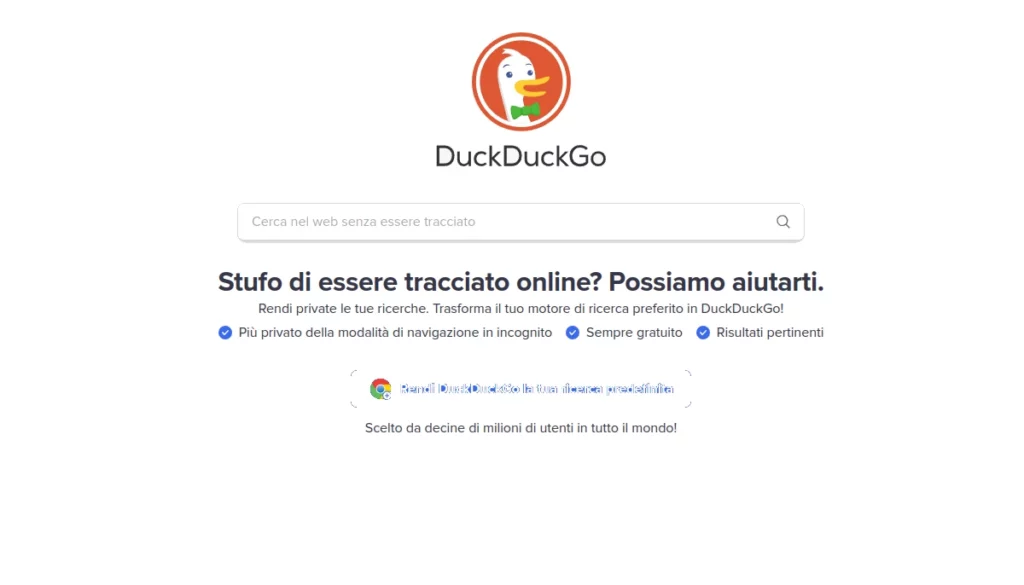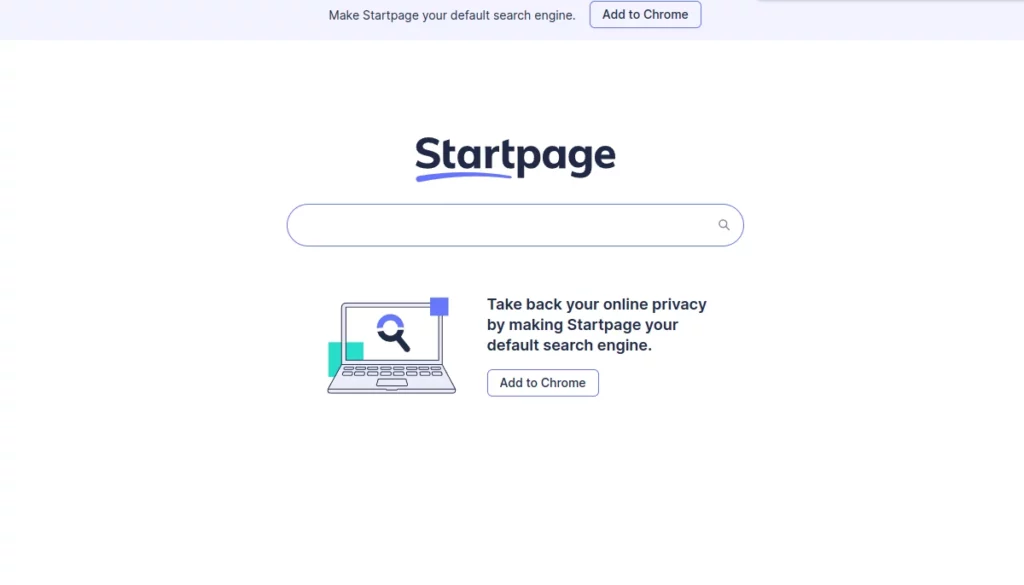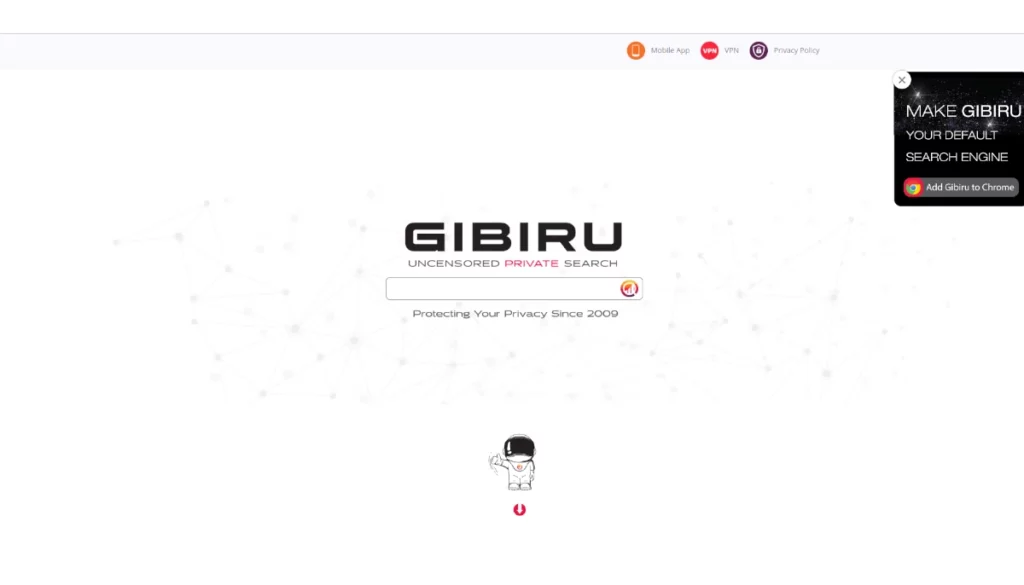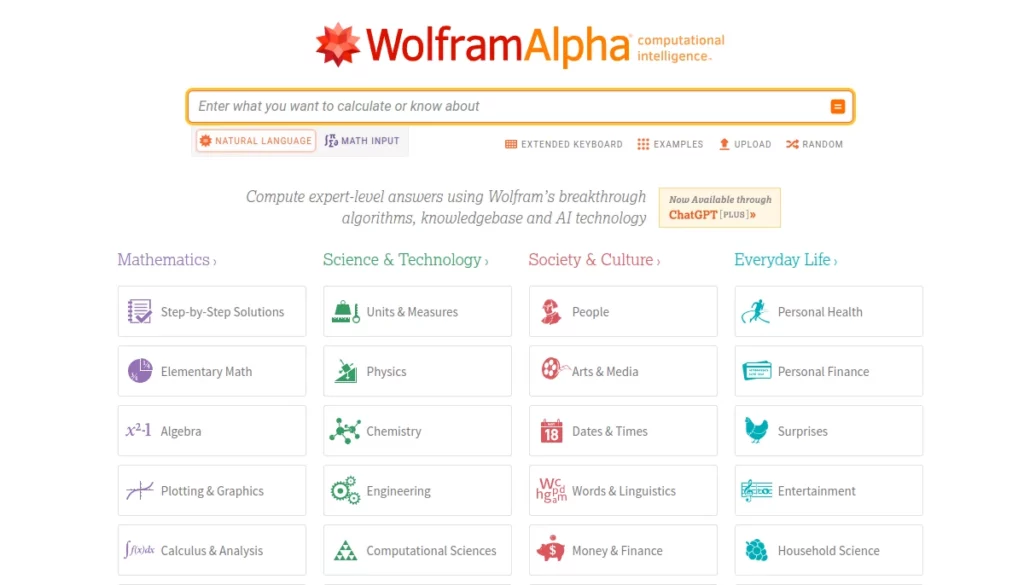(Article updated on July 17, 2025) – Search engines have become a fundamental part of our daily lives. When it comes to search engines, Google is usually the first name that comes to mind. However, the web is far more diverse than it seems, and over the years many valid alternatives have emerged—or persisted—that cater to different needs: privacy, localized results, innovative approaches, or simply a different user experience.
In this article, we present 10 alternative search engines to Google, each with its own unique features. We originally included Ask.fm, a question-and-answer platform that was once used for informal queries. However, Ask.fm is no longer active—you can read more about it in this article.
To keep this list updated and relevant, we’ve replaced it with two equally interesting alternatives: Qwant, a privacy-focused European engine, and Ecosia, which plants trees for every search you perform.
So here it is—our updated top 10 alternative search engines to Google.
Want to rank on search engines?
Get found where it really matters — on Google, Bing, Qwant, Ecosia and beyond.
With our SEO and GEO optimization services, we boost your visibility and drive qualified traffic to your website.
Table of Contents
- Want to rank on search engines?
- What are Search Engines?
- When were search engines born?
- How many Search Engines are there?
- How do Search Engines work?
- The 10 best alternative search engines to Google
- The Most Used Search Engines: Statistics
- SEO on Alternative Search Engines
- Conclusion
What are Search Engines?
Search engines are computer tools that scan the web for web pages, documents and other online content. These tools organize and index this information to help users find what they are looking for.
When were search engines born?
Search engines have a fascinating history. The first search engine, “Archie,” was born in 1990. Since then, many other search engines have been developed, each with their own unique features.
How many Search Engines are there?
There are thousands of search engines on the web, but only a few of them are widely used. Google is the most popular, but there are numerous high-quality alternatives.
How do Search Engines work?
Search engines use complex algorithms to examine web pages and determine which results to show users. Factors such as relevance, authority and freshness of the content influence the ranking of the results.
Below are the main characteristics of how a search engine works.
Search Algorithms
Search engines use complex search algorithms to find and rank web pages based on their relevance to a user-entered query . The algorithms take into account a number of factors, including keywords, content quality, site authority and many others.
Indexing
Before a search engine can return results, it must “index” web pages. This means it constantly explores and archives the content of the web. Indexing allows the search engine to quickly access relevant pages when a user searches.
Keyword Research
When a user enters a query into the search bar, the search engine analyzes the keywords contained in the query. These keywords are compared to the indexed data to find matches.
Ranking of Results
Once matches are found, the search engine must rank the results based on their relevance. It uses ranking algorithms to determine which page should appear at the top of the results. Ranking factors include quality of content, number of incoming links and many more.
Return of Results
Finally, the search engine returns the results to the user in a search results page (SERP) . Results are usually organized in order of relevance, with the most relevant results at the top of the page.
Advanced Search
Search engines often offer advanced search options, allowing users to refine their query using filters such as date, language, geographic region, and other specific criteria.
Monitoring User Behavior
Some search engines track user behavior to further improve future search results. This may include tracking previous searches, clicks on results and user preferences.
Continuous Adaptation
Search engines are constantly evolving. Developers are constantly trying to improve algorithms to provide more relevant results and meet user needs.
The 10 best alternative search engines to Google
Summary sheet
Below is a sheet that summarizes the characteristics that most strike us of the 10 best search engines
| The 10 Best Search Engines | because it’s better |
|---|---|
| Bing | Visual interface |
| Baidu | huge Chinese market |
| Yandex | the most famous among Russian search engines |
| DuckDuckGo | unbiased search results |
| Startpage | respect for privacy |
| Gibiru | uncensored search results |
| Disconnect Search | neutral serps without tracking |
| Wolfram Alpha | direct answers and calculations |
| Qwant | a privacy-focused European search engine. |
| Ecosia | every search helps plant trees through ad revenue. |
Bing

Bing is a search engine developed by Microsoft and is one of the most popular search engines in the world. It is one of the leading alternatives to Google and was launched in 2009 as the successor to MSN Search.
Here are some key features of Bing:
- Visual Interface : Bing is known for its attractive visual interface. It often displays high-quality background images that change daily.
- Integration with Microsoft : Bing is integrated with Microsoft’s Windows operating system and other products such as Cortana (Microsoft’s virtual assistant) and Microsoft Office.
- Search Results : Bing offers accurate and cleanly organized search results. Includes web searches, images, videos, news and more.
- Extra Features : Bing has extra features, such as the ability to search for videos with thumbnail previews directly on the search results page. It also offers an information panel on the right with additional details on many searches.
- Local Search : Bing is known for offering good results for local searches, such as nearby restaurants or the weather forecast for your area.
- Image Search : You can search for images on Bing, including the ability to search for similar images or Creative Commons licensed images.
- Translation : Bing also offers translation services, including translation of entire web pages.
- Maps : Bing Maps offers maps and driving directions, competing with Google Maps.
- Bing Ads : Bing offers an online advertising system similar to Google Ads, which allows advertisers to promote their products or services through paid ads.
- Privacy : Bing is committed to your privacy and offers options to opt out of search tracking.
In summary, Bing is a great alternative to Google, especially if you want a visually appealing search or if you are a Windows user. Many people find it useful to use both search engines depending on their specific search needs.
Baidu

Baidu is a widely used Chinese search engine and is often referred to as the “Google of China”. Founded in 2000 by Robin Li and Eric Xu, Baidu has become the leading search engine in China and many other Asian regions.
Here are some key features of Baidu:
- Chinese Language : Baidu is primarily Chinese-language and offers search results primarily in simplified Chinese characters. However, it has an English language version for international users.
- Search Results : Baidu offers search results for a wide range of content, including websites, images, videos, maps, news, and more.
- Image Search : Baidu offers a very advanced image search feature, which allows users to find similar images or identify objects based on a photo.
- Baidu Baike : Similar to Wikipedia, Baidu Baike is an online encyclopedia that offers information on a wide range of topics. Users can contribute and edit content.
- Maps : Baidu Maps is Baidu’s online map service and is widely used in China for finding places, directions and traffic information.
- Online Video : Baidu also has a popular video streaming service called iQiyi, which is often compared to YouTube. iQiyi offers a wide range of video content, including movies, TV series, and more.
- Baidu Zhidao : It is a question and answer platform similar to Quora, where users can ask questions and get answers from the community.
- Voice Search : Baidu offers voice search, which is especially popular in China, where users can use voice recognition to search.
- Baidu Wallet : Baidu also has a digital wallet called Baidu Wallet, which allows users to make online and offline payments, similar to services like PayPal.
- Government Regulations : It is important to note that Baidu is subject to Chinese government regulations regarding censorship and control of online content. This means that some content may be filtered or restricted based on Chinese government guidelines.
In summary, Baidu is the leading search engine in China and is a comprehensive online platform with a wide range of services and features. However, it is important to consider government regulations when using Baidu in China.
Yandex

Yandex is a widely used Russian search engine, often referred to as the “Russian Google”. Founded in 1997 by Arkady Volozh, Yandex has become the most popular search engine in Russia and many other regions of the Commonwealth of Independent States (CIS) and Eastern Europe. Here is some key information about Yandex:
- Russian language : Yandex is primarily Russian-language and offers search results primarily in this language. However, it has an English language version for international users.
- Search Results : Yandex offers search results for a wide range of content, including websites, images, videos, news, maps and more.
- Yandex.Maps : It is Yandex’s online map service and is widely used for finding places, directions and traffic information.
- Image Search : Yandex offers an image search feature that allows users to search for similar images or identify objects based on a photo.
- Yandex.Translate : It is an online translation tool that allows users to translate texts and web pages into different languages, similar to Google Translate.
- Online Services : In addition to the search engine, Yandex offers a wide range of online services, including email services (Yandex.Mail), a web browsing platform (Yandex Browser), a video streaming service (Yandex Video), and so on.
- Cloud Storage : Yandex offers cloud storage called “Yandex.Disk,” which allows users to store and share files online.
- Marketplace : Yandex has an e-commerce service called “Yandex.Market,” where users can search for products and make purchases online.
- Yandex.Direct : It is an online advertising platform similar to Google Ads, which allows advertisers to create ads and promote their products or services on Yandex search results.
- Government Regulations : Like Baidu in China, Yandex is subject to Russian government regulations regarding censorship and control of online content. This means that some content may be restricted or filtered under Russian laws.
Yandex is a comprehensive search engine and online platform with a number of services and features. It is especially popular among users from Russia and other Eastern European and CIS regions.
DuckDuckGo

DuckDuckGo is a search engine that has gained increasing popularity in recent years, mainly due to its commitment to user privacy and offering unbiased search results. Here is some key information about DuckDuckGo:
- Privacy First : DuckDuckGo is known for its strong commitment to privacy. It does not collect users’ personal information, such as their search history or IP addresses. This is in stark contrast to other search engines, such as Google, which track and store user information for advertising purposes.
- Unbiased Results : DuckDuckGo is committed to providing unbiased, non-personalized search results. This means that all users will see the same results for a given query, without any influence based on search history or user profiles.
- Anonymous Search : DuckDuckGo offers an anonymous search mode called “DuckDuckGo Privacy Essentials,” which prevents websites and advertisers from tracking your online activity.
- Bangs : This is a unique feature of DuckDuckGo that allows users to directly search other websites using commands called “Bangs.” For example, you can search on Amazon by typing “!amazon” followed by your search query.
- Searching for Information : DuckDuckGo offers a variety of built-in features, such as math calculations, word definitions, weather information, and more, right from the search bar.
- Respect for Preferences : Users can customize DuckDuckGo through settings, for example choosing to enable or disable Safe Search features or use dark themes.
- Browser Extensions : DuckDuckGo offers browser extensions that allow users to protect their online privacy and search directly from the address bar.
- Mobile App : DuckDuckGo has a mobile app available for iOS and Android devices, giving users the ability to use the search engine on their mobile devices as well.
- Transparency : The company is transparent about its privacy policies and publishes regular transparency reports to demonstrate its commitment to protecting user data.
- Community and Open Source : DuckDuckGo encourages community participation and much of its code is open source, meaning developers can examine how it works and help improve the search engine.
DuckDuckGo has become a popular alternative for those who are concerned about their online privacy and want to avoid ad tracking. It is an interesting choice for those looking for a search engine that respects user privacy and offers neutral search results.
Startpage

Startpage is a search engine that focuses heavily on user privacy. Here is some key information about Startpage:
- Privacy : Startpage is known to be one of the most privacy-friendly search engines. It does not collect users’ personal information, such as search history or IP address. Furthermore, it does not use tracking cookies.
- Anonymous Search Results : Startpage acts as an intermediary between the user and Google. When you search on Startpage, your search data is sent to Google anonymously. In other words, Google receives the search request, but doesn’t know who made it.
- Viewing Websites : Startpage offers the “View from Startpage” feature, which allows users to open websites anonymously directly from search results, preventing sites from tracking the user.
- Built-in Proxy : In addition to viewing websites anonymously, Startpage also offers a built-in proxy that allows users to anonymously browse websites directly from the search results page.
- Without Filters : Startpage offers search results without filters or censorship. This means that users will see all results relevant to their search, without any manipulation.
- Safe Image Search : Startpage offers an image search feature that filters out inappropriate and potentially offensive content, making image searches safe.
- Mobile Privacy : Startpage has a mobile app available for iOS and Android devices, extending privacy-friendly search options to mobile users.
- Browser Extensions : The company offers browser extensions that allow users to protect their online privacy and search directly from the address bar.
- Data Cleaning : Startpage offers a “data cleaning” service that allows users to safely delete their search data from Google.
- Location Options : Users can select their preferred geographic location to get search results relevant to their area.
Startpage is an excellent choice for those who want a search engine that puts privacy first. It is an interesting alternative to Google for those who want to avoid ad tracking and protect their online privacy when searching.
Gibiru

Gibiru is an alternative search engine that presents itself as a private search platform and focuses on user privacy. Here is some key information about Gibiru:
- Privacy : One of Gibiru’s distinctive features is its attention to privacy. Gibiru says it does not log users’ IP addresses or track their searches. This means that your search activities should be more private than on more traditional search engines.
- No Censorship Filters : Gibiru claims that it does not censor search results. This means that your search results may include a wider variety of websites than search engines that apply content filters.
- Anonymous Search Engine : Gibiru allows users to search anonymously, meaning they do not need to provide personal information to search.
- Browser Plugins : Gibiru offers browser plugins as an option to facilitate searches directly from the browser toolbar.
- Deep Web Search : Gibiru claims to search the “Deep Web” and “Dark Web,” which may lead to more in-depth and diverse results than other search engines.
- Fast Search Results : Gibiru promises to provide fast search results, which can be important for users who want to get information quickly.
- No Personalization of Results : Unlike some search engines that personalize results based on users’ search history, Gibiru says it doesn’t do this. As a result, every user should see the same results for a given search query.
- Limitations : Because Gibiru does not record your searches or provide personalized results, you may not get the same accuracy or relevance of results that you would find on larger search engines like Google.
In summary, Gibiru is an alternative search engine that focuses on user privacy and lack of censorship in search results. It’s a choice worth considering if privacy is a major concern when searching online, although you may have to rely on better-known search engines for highly personalized results or highly specialized searches.
Disconnect Search

Disconnect Search is a search engine designed to provide private and anonymous search results to users. Here is some key information about Disconnect Search:
- Privacy Oriented : Disconnect Search’s main feature is its focus on user privacy. It promises not to track or record user searches, which means your search activities should be private and not associated with your IP address or user profile.
- Track Protection : Disconnect Search claims to remove trackers and tracking requests from search results. This prevents third parties from tracking your search activities and creating a profile based on them.
- Neutral Search Results : Disconnect Search does not personalize search results based on your history or previous searches. This means that each search should return similar results for all users, helping to avoid so-called “filter bubbles”.
- Advanced Search Options : In addition to standard web search, Disconnect Search offers advanced search options for specific categories such as news, images, videos and maps. This can be helpful in refining your searches.
- Anonymous Search : Disconnect Search offers the ability to search anonymously, meaning you do not need to provide personal information or an account to use the service.
- Multiple Search Engines : Disconnect Search uses multiple search engines to generate its results, including engines such as Bing and Yahoo. This can help provide a broader range of search results.
- Browser Extensions : Browser extensions are available for Disconnect Search, making it easy to access the search engine directly from your browser toolbar.
- Payment Optional : Disconnect Search offers a paid premium plan that includes additional features like search encryption and access to faster servers. However, you can use Disconnect Search for free without registration.
In summary, Disconnect Search is a search engine focused on privacy and protection from online traces. If your main concern is keeping your search activity private and not being tracked by third parties, Disconnect Search is an option to consider. However, you may not get as personalized or relevant results as larger search engines like Google.
Wolfram Alpha

Wolfram Alpha is a computational search engine developed by Wolfram Research. It differs from traditional search engines, such as Google, because instead of searching for existing information on web pages, it provides direct answers and calculations based on a vast database of data and mathematical algorithms. Here is some key information about Wolfram Alpha:
- Computational Search Engine : Wolfram Alpha is designed to answer complex questions and provide calculated data rather than listing links to web pages. For example, if you ask “What is the distance between the Earth and the Moon?”, Wolfram Alpha will calculate the answer instead of returning a list of websites.
- Vast Data Base : Wolfram Alpha contains a vast amount of data in several fields, including mathematics, science, technology, history, geography, and much more. It is useful for obtaining factual information and making complex calculations.
- Mathematical Calculations : Wolfram Alpha is a great tool for solving complex mathematical equations, making graphs, calculating integrals, derivatives and much more. It is used by both students and professionals in the scientific and mathematical fields.
- Scientific Information : Provides detailed scientific information on a wide range of topics. For example, you can get data about a specific chemical element or information about the constellations in the night sky.
- Conversions and Units : You can use Wolfram Alpha to convert different units of measurement, such as currencies, lengths, temperatures and more.
- Financial Calculations : Wolfram Alpha can perform financial calculations, including mortgage calculations, conversion currencies and interest calculations.
- Demographic and Geographic Information : Provides demographic and geographic data on cities, towns and regions, including information on population, elevation and climate.
- Virtual Assistant Integration : Wolfram Alpha has been integrated into virtual assistants like Apple’s Siri, meaning you can ask complex questions or calculations using your mobile device.
- Free and Premium Version : Wolfram Alpha offers a free version accessible directly from its website, but it also has a premium version that provides additional features, such as step-by-step visualization of calculations and access to more advanced data.
In summary, Wolfram Alpha is a powerful and versatile search engine that focuses on providing answers based on calculations and data. It is especially useful for students, professionals, and science and math enthusiasts, but can be a valuable information resource for a wide range of questions and research.
Qwant

Qwant is a European search engine, founded in France in 2013, with a strong mission: to provide relevant search results without compromising user privacy.
Privacy-first
- No tracking: Qwant doesn’t store your search history, doesn’t use tracking cookies, and doesn’t build user profiles.
- No personalized ads: ads are based solely on the search keywords, not on user behavior.
Built in Europe
- Infrastructure and servers are based in Europe and comply fully with GDPR data protection regulations.
- Seen as a “sovereign” alternative to Google, especially favored by schools and public institutions.
Smart interface
- Results organized into Web, News, Social, and Shopping tabs.
- Includes Qwant Maps for private, non-tracked navigation.
- Offers a kid-friendly version: Qwant Junior, designed for safe educational use.
Highlights
Official partner of Mozilla Firefox — easy to set as your default search engine.
Clean, modern user interface.
Available in multiple European languages.
Ecosia

Ecosia is a search engine with an environmental mission: to plant trees around the world using ad revenue generated by user searches. Founded in 2009 in Germany, it has become the go-to choice for eco-conscious web users.
Eco-friendly search engine
- Ecosia invests 80–100% of its profits in tree-planting projects across 30+ countries, including Brazil, Indonesia, Madagascar, and Burkina Faso.
- On average, one tree is planted every 45 searches.
Privacy & transparency
- Doesn’t sell user data to advertisers.
- Searches are encrypted, and personal data is not stored permanently.
- Ecosia publishes a monthly financial report to show exactly how its revenue is used.
Powered by Bing
- Ecosia uses Bing search results, offering a clean and privacy-respecting interface.
- Available on all major browsers and as a mobile app.
Highlights
- Runs its servers on renewable energy.
- Certified as a B Corporation, meaning it’s legally committed to environmental and social goals.
- A simple way to help the planet while browsing the web.
The Most Used Search Engines: Statistics
Search engine usage statistics offer an interesting insight into the habits of online users. While Google is the most used search engine globally, there are other platforms that have notable user bases. Here are some key statistics on the most used search engines:
| Search Engine | Market Share | Monthly Visits | Active Users | Key Features |
|---|---|---|---|---|
| 89.5% | >1 billion | — | Market leader | |
| Bing | 3.95% | ~1.4 billion | — | Strong Windows integration |
| Yandex | 2.45% | ~159 million | — | Leading Russian engine |
| DuckDuckGo | 0.86% | ~3B yearly searches | — | Privacy-focused |
| Baidu | 0.73% | — | — | Dominant in China |
| Startpage | <1% (privacy) | — | — | Anonymous Google-powered results |
| Gibiru | Negligible | — | — | Privacy-first, uncensored |
| Disconnect | Negligible | — | — | Proxy search, private channels |
| Wolfram Alpha | — | ~3.9 million | — | Computational answers |
| Qwant | ~0.02% global | 15–30 million | ~6 million | GDPR-compliant, EU-based |
| Ecosia | 0.09% global | ~203 million | ~20 million | Eco search, tree-planting model |
SEO on Alternative Search Engines
Search Engine Optimization ( SEO ) is important not only for Google but also for other platforms. Optimizing your content for these alternative search engines can increase your online visibility.
Conclusion
Search engines are an essential tool in our digital life. Despite Google’s dominance, there are several high-quality alternatives, each with their own advantages. Exploring these alternative search engines can enrich your online search experience and offer greater security and privacy. Which one will you choose for your future research?
Sign up for the newsletter. Stay updated!
We will send you periodical important communications and news about the digital world. You can unsubscribe at any time by clicking the appropriate link at the bottom of the newsletter.


Leave a Reply